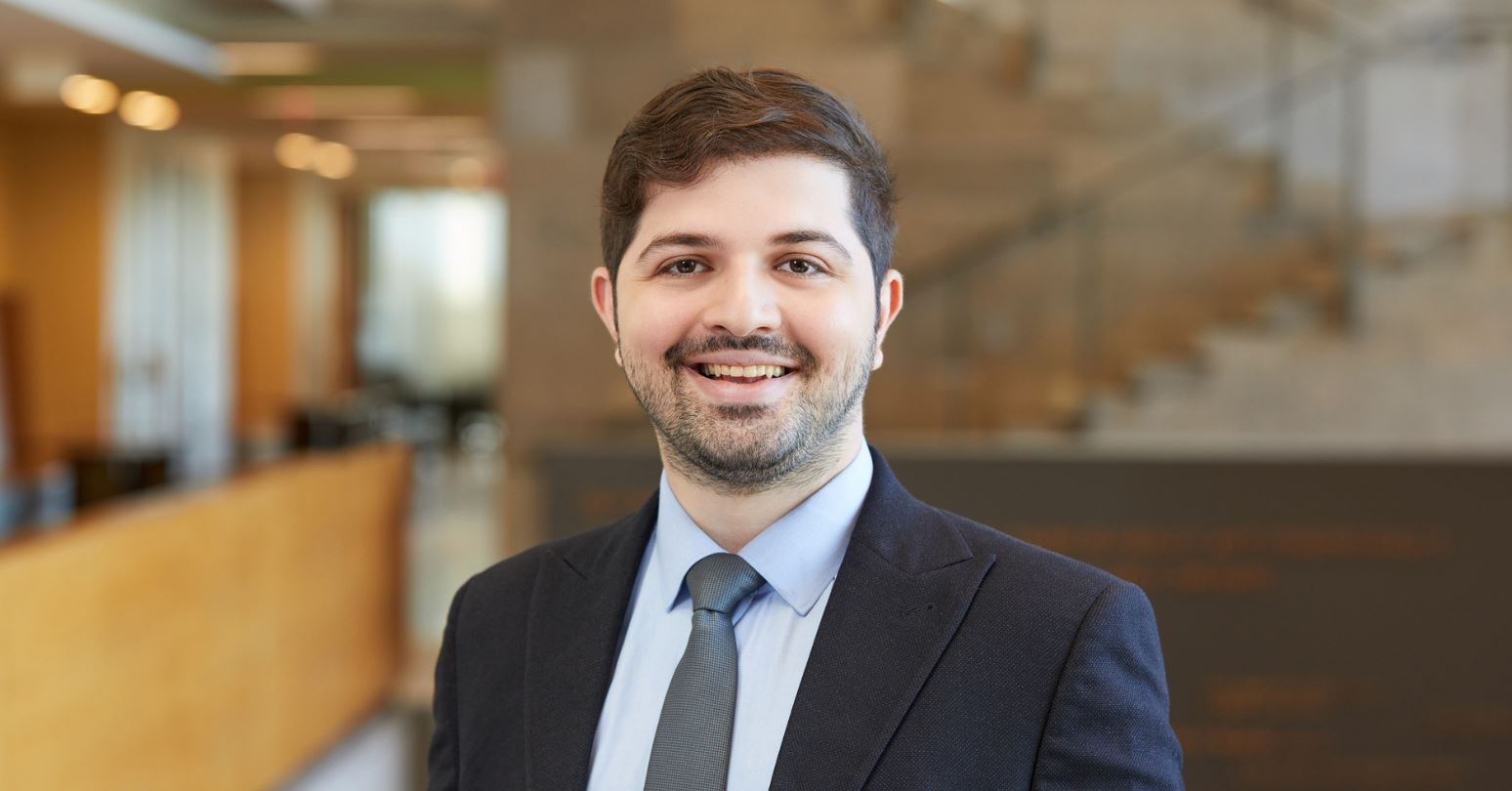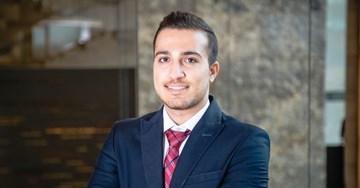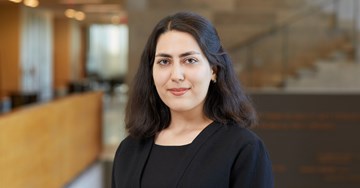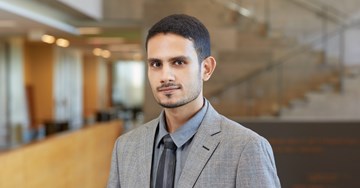Ivey’s PhD Program in Business Administration is a full-time research-based program designed to develop scholars and to place graduates at high-quality research universities around the world. Our PhD candidates are showcased at conferences around the world, and regularly featured in top-tier academic and industry publications.
To help you get to know them, we’ve asked them about their academic and personal interests.
Q&A with Milad Saeedi, PhD candidate
What is your background?
Before coming to Canada, I lived my entire life in Tehran, Iran’s capital. Living in such a crowded city with too many challenges encouraged me to study Urban Planning. After I graduated from the University of Tehran with a bachelor’s degree, I completed an MBA degree in Technology Management. Outside of school, I worked part time in various corporations, gaining diverse business experiences in different industries from banking and retail to information technology.
What attracted you to Ivey's program?
I spent a tremendous amount of time searching for an ideal PhD program and potential supervisors. Throughout this process, I attended many information sessions and had the pleasure of talking to many prominent business scholars, including professors Ning Su and Rob Austin, my current advisors at Ivey. Their support, as well as the impressive research outputs of the information systems area group, made me believe that Ivey would help me to achieve my academic and professional goals. Ivey is one of the top business schools in Canada, and its diverse, interdisciplinary, and well-designed program made the School my top choice for pursuing a PhD degree and conducting cutting-edge research in Information Systems.
What is your research focus?
Research areas such as innovation management, technology management, and digital entrepreneurship are my favourite fields of study. To be more specific, creativity and innovation, design and adoption of technologies, smart cities and using technologies in urban areas, the impact of technologies on society and the environment, innovation ecosystems, digital videogames, artificial intelligence, and virtual reality are some of the topics that I find compelling.
I am currently working on a research project about the suboptimal outcomes of IT innovations for organizational performance. In addition, I am a part of the Neurodiversity Employment Program research group, under the supervision of professor Austin.
Why is that area appealing to you?
The benefits of using technologies and innovations are well represented in previous academic publications and using technologies and smart solutions clearly helps in overcoming the daily challenges people face. However, technologies and innovations could also produce significant unexpected or unanticipated results, and it would be naïve to assume that development of new technologies is inherently advantageous all the time. Therefore, preventing the huge costs and unanticipated consequences of technologies with improper design could help business practitioners in their decision-making and strategies.
In accordance with my research interests, Future of Artificial Intelligence is a topic that discusses the ways artificial intelligence (AI) could cause unprecedented damage to our world. There are many movies and TV series about this phenomenon, and watching Black Mirror, Westworld, and Silicon Valley would be enlightening in terms of the potential consequences of technological innovations.
How do you see your research making an impact?
First and foremost, I plan to contribute to the current literature regarding the consequences of innovations and fill the research gaps that are present in this underrepresented topic. I believe that the pro-innovation bias endangers the society, organizations, and environment. Additionally, with proper design strategies of technologies and with long-term impact assessment of technological innovations, the potential harms could be avoided or reduced. Therefore, my research could help businesses in reducing the costs of innovation failures, societies in avoiding digital gaps or other social consequences of innovation, and the environment in the prevention of technological hazards.
How do you see your research as an aid to business improvement?
Many businesses prioritize short-term revenues over the long-term benefits, and as a result, fail to produce sustainable benefits for their stakeholders. In the context of technological innovations and IT firms, unsuccessful businesses and startups fail due to improper business plans and lack of proper investigation of the market needs. As one of the remedies, pursuing innovations could help in achieving competitive advantage, but if pursued blindly, innovativeness could create even more troubles than before. Preventing the potential pitfalls of innovations and optimizing the holistic benefits of innovations for all stakeholders helps in business improvement and sustainable development.
Where did you grow up and what was it like there?
I grew up in Tehran and it was extremely lovely when I was a child. In my childhood, I used to play in beautiful parks of the city and there were so many attractions that it was difficult to choose where to go. In the earliest years, Tehran transformed from a beautiful city to a centre of air pollution, traffic, crime, and inequality. As Urban Planning students, we worked on many of the challenges the city faced, but the lack of authority did not allow any emancipations.
Still, Tehran is a diverse city with many restaurants, cafés, and malls that could be a great destination for a short trip. Most of my good memories in Tehran were shaped in the central part of the city, in between Amirkabir University and University of Tehran, and more than anything, I miss walking in Keshavarz Boulevard.
Who have been the strongest influences in your life?
Even though my parents do not have formal academic education, they taught me the most important lessons of my life, and I was lucky enough to grow up in a family in which kindness and unconditional love was the most aspired value. We were so close that I saw my grandparents and uncles and aunts every week, and their sincere support made me who I am today.
However, the most impactful person in my life is my wife, Nikoo. We were classmates during the Urban Planning at University of Tehran, and it has been almost eight years since we started our friendship. Over all these years, she has been the most kind, supportive, caring, thoughtful, and lovely person in my life, and without her support, I would not have been here.
What might someone be surprised to know about you?
As an avid fan of The Lord of The Rings trilogy, I watched all the movies more than 50 times.
What is the most played song on your playlist as of now?
Music, especially EDM, is an inseparable part of my life. I think Right Back by Yuri Kane is my most played song ever. However, Every Time by Seven Lions and Hold On by Martin Garrix are two of the songs I have been addicted to recently and I cannot stop listening to them.
What book would you recommend to others? Why?
I spent most of my childhood reading Jules Verne’s books, and I think they made the biggest impact on my aspirations. Among his books, Around the World in Eighty Days, Journey to the Center of the Earth, and From the Earth to the Moon are three books I recommend for immersing in the creative mind of the father of science fiction.



